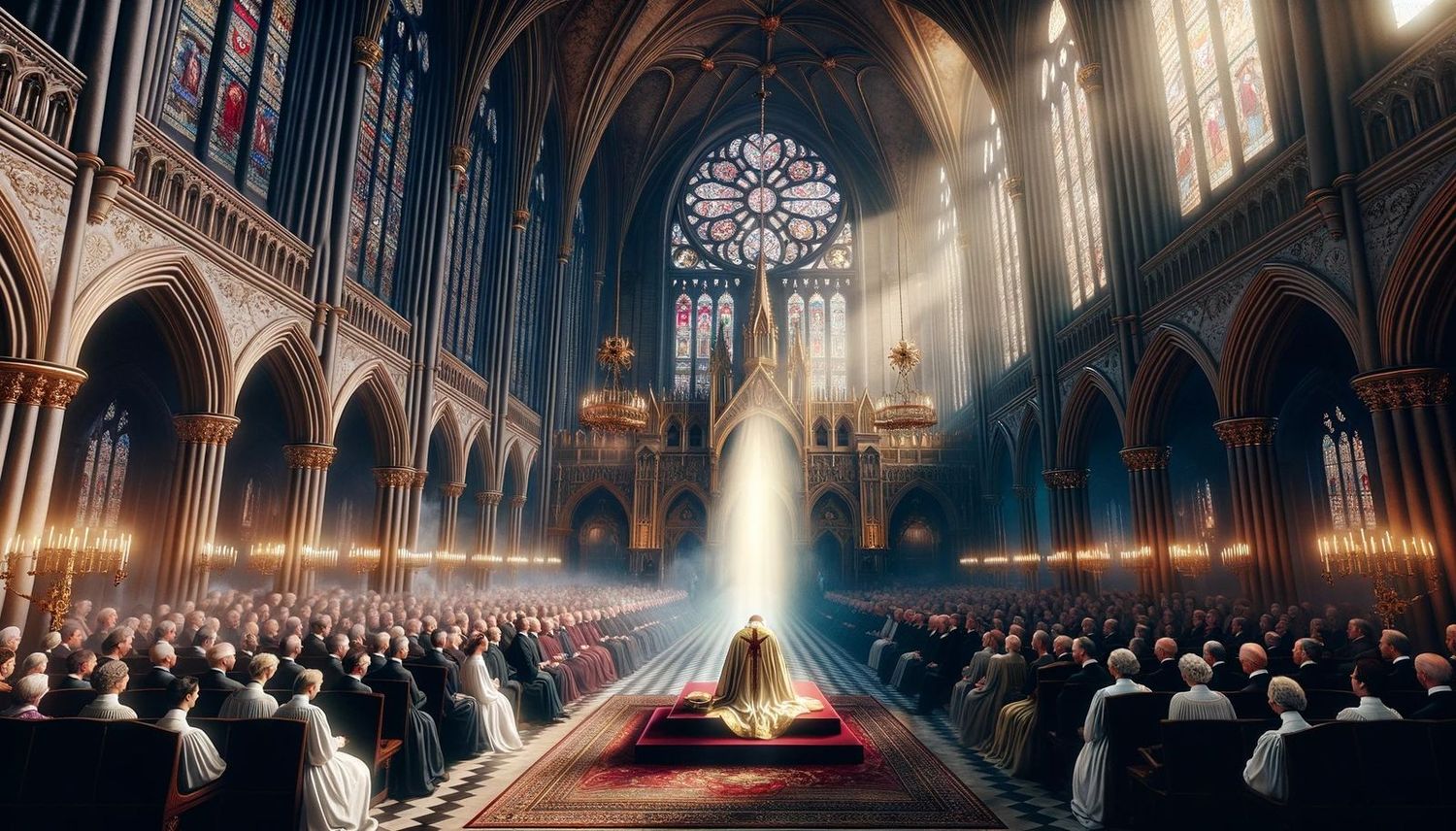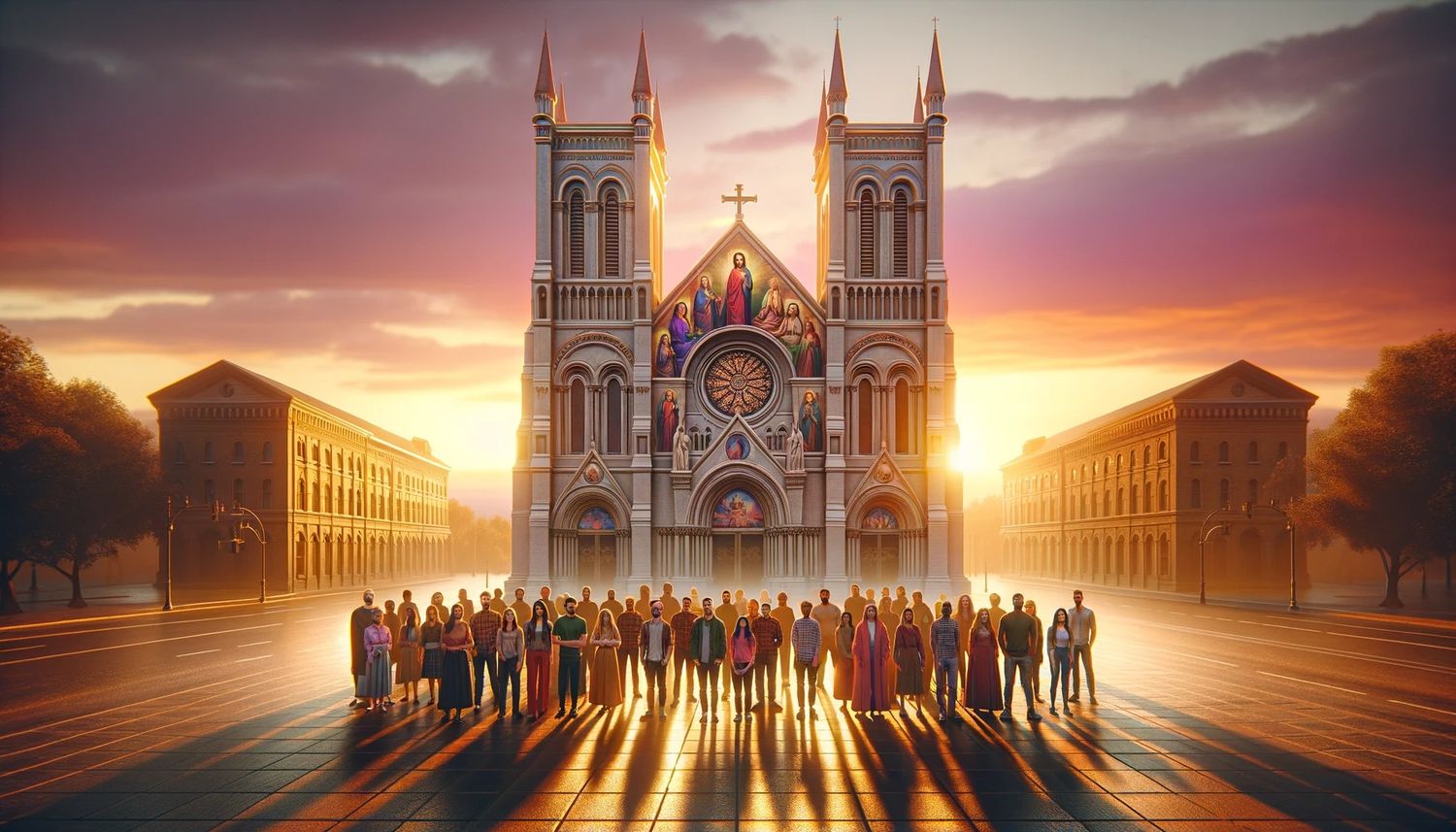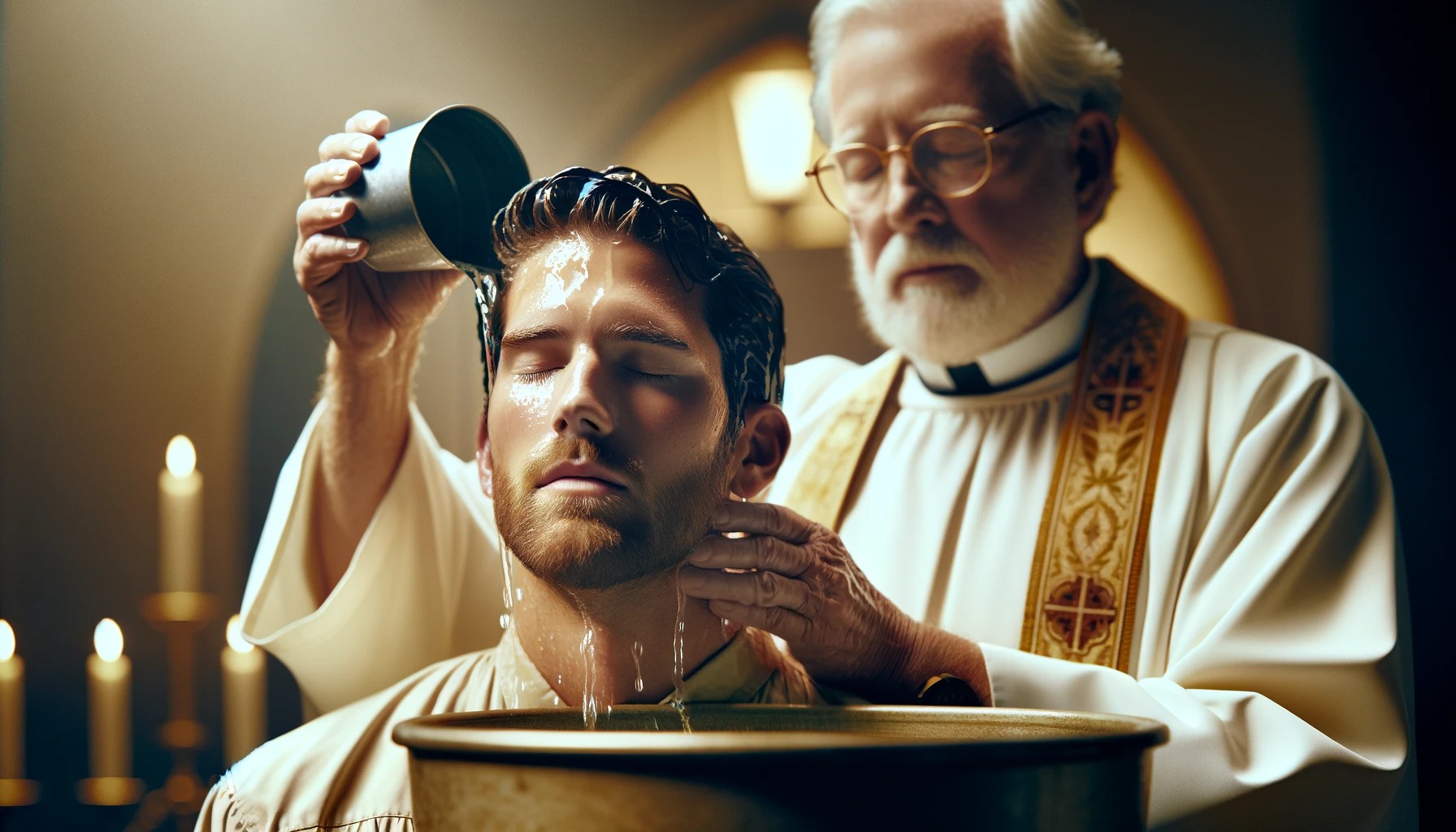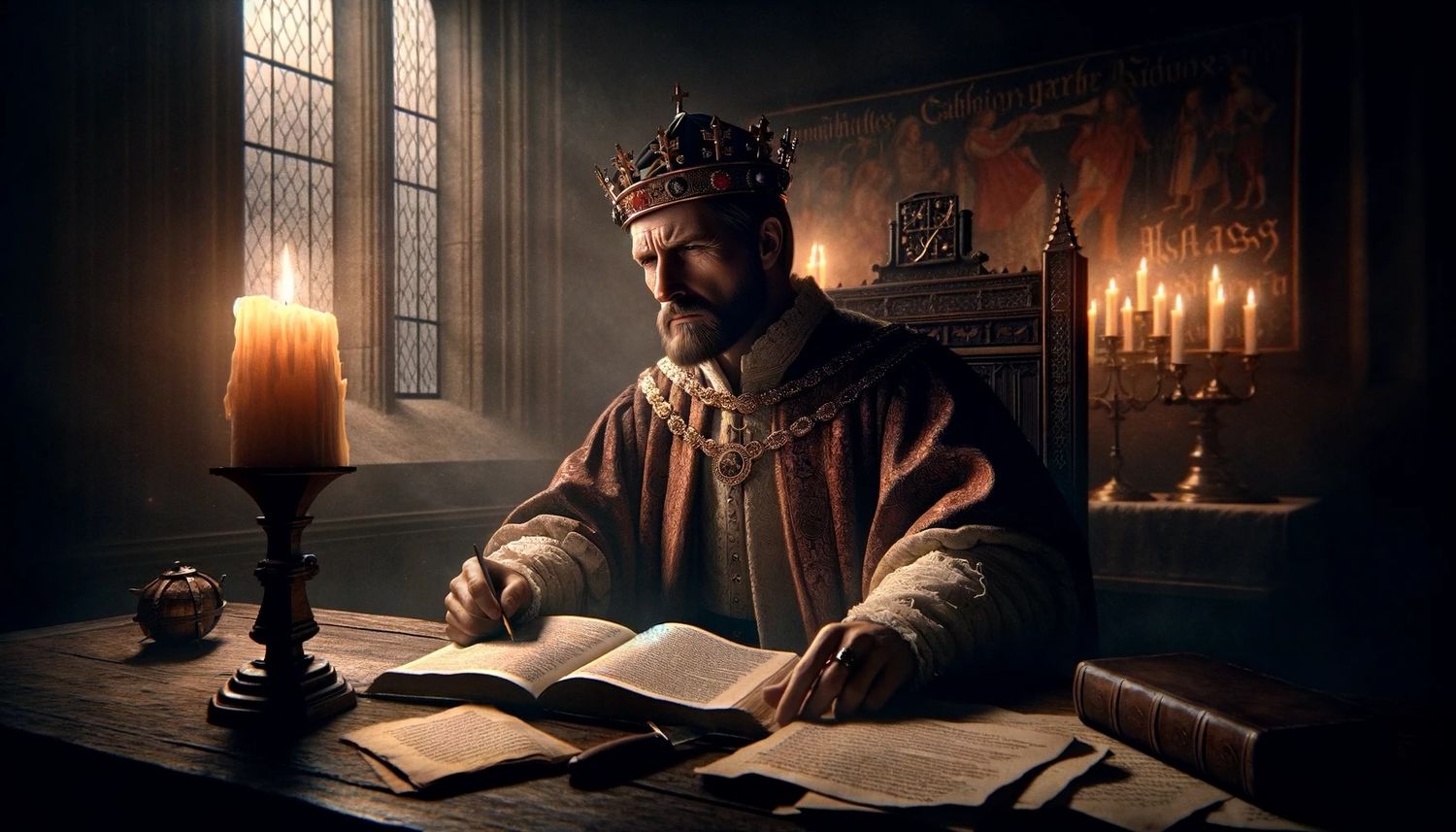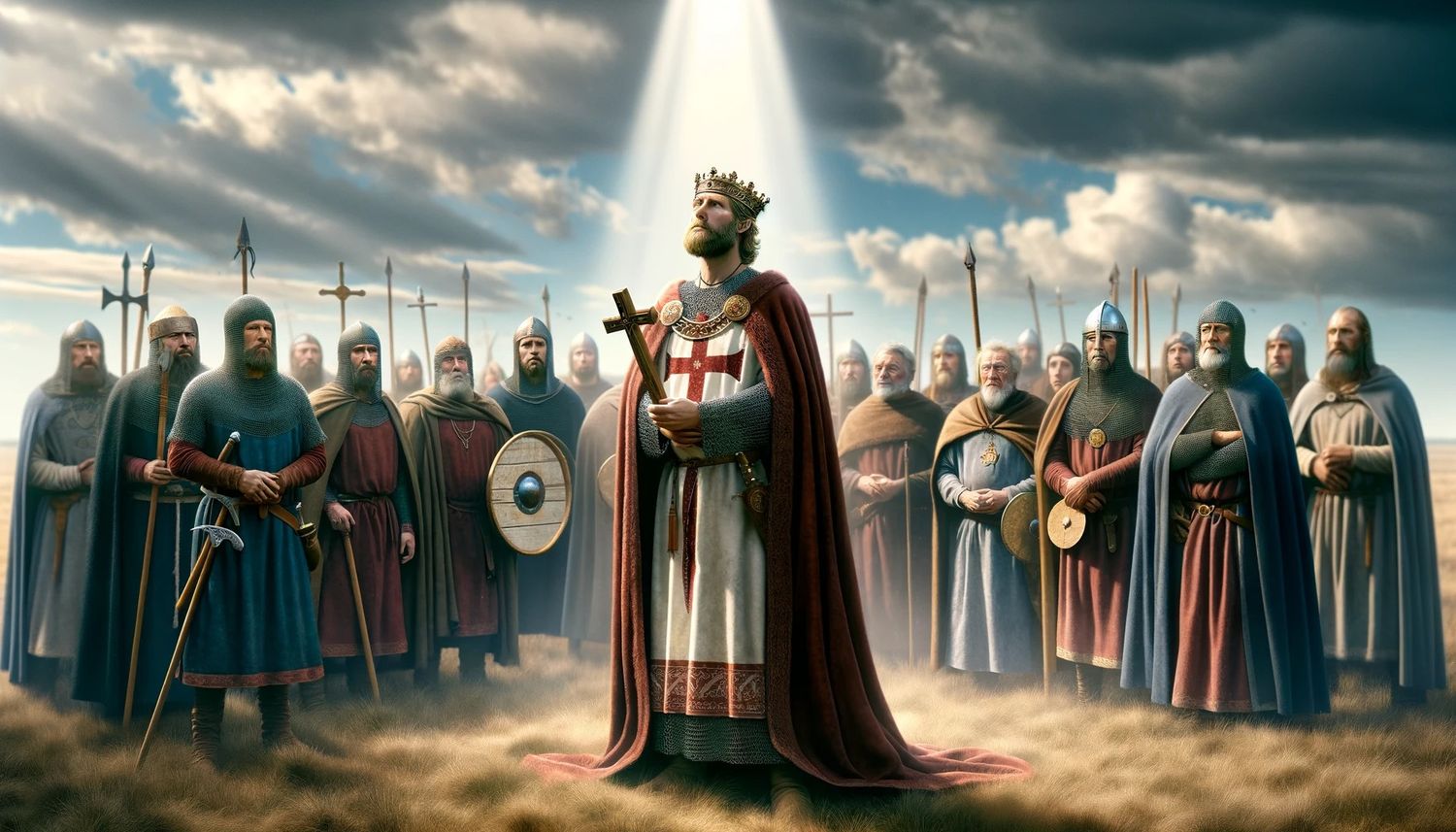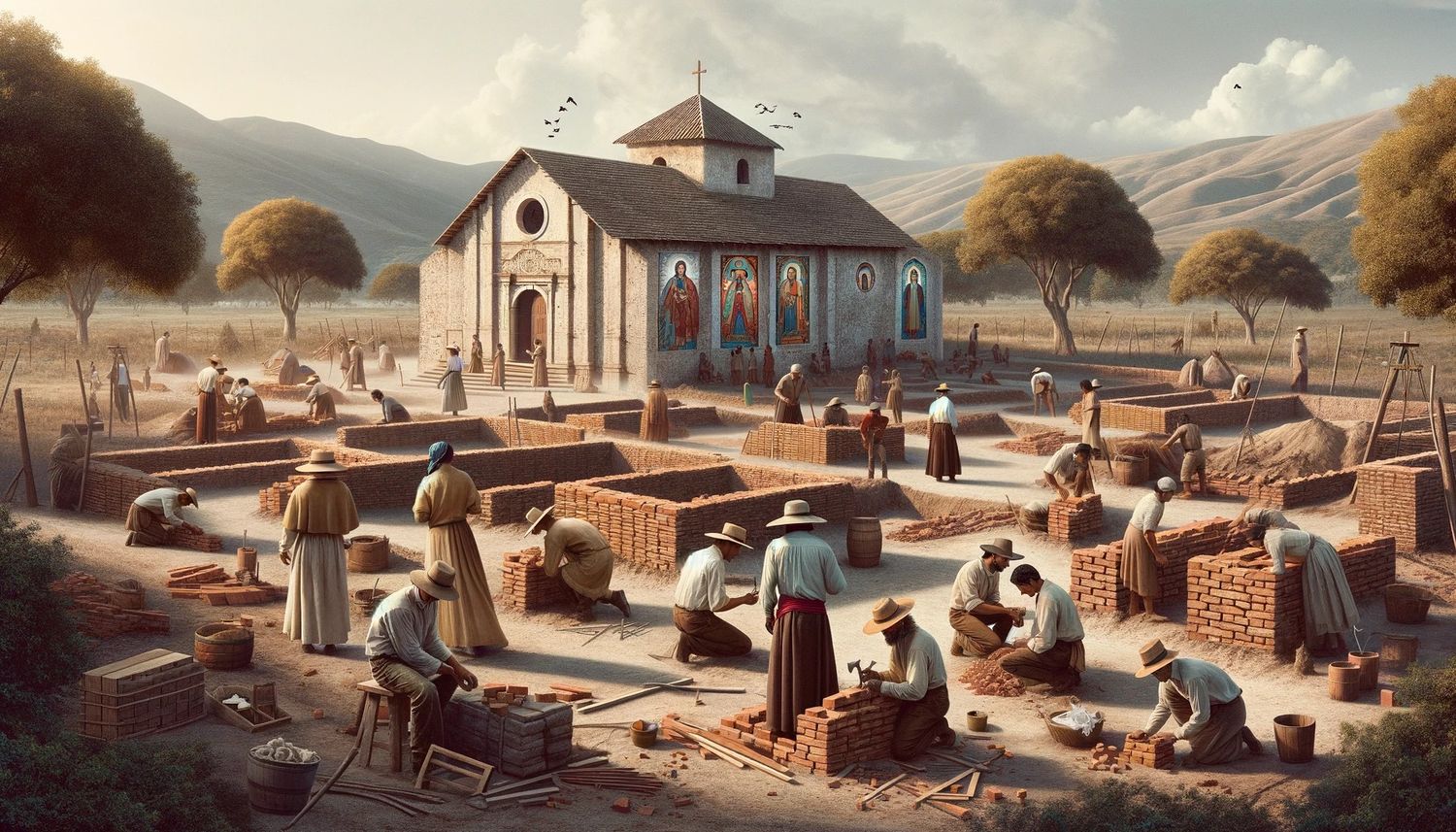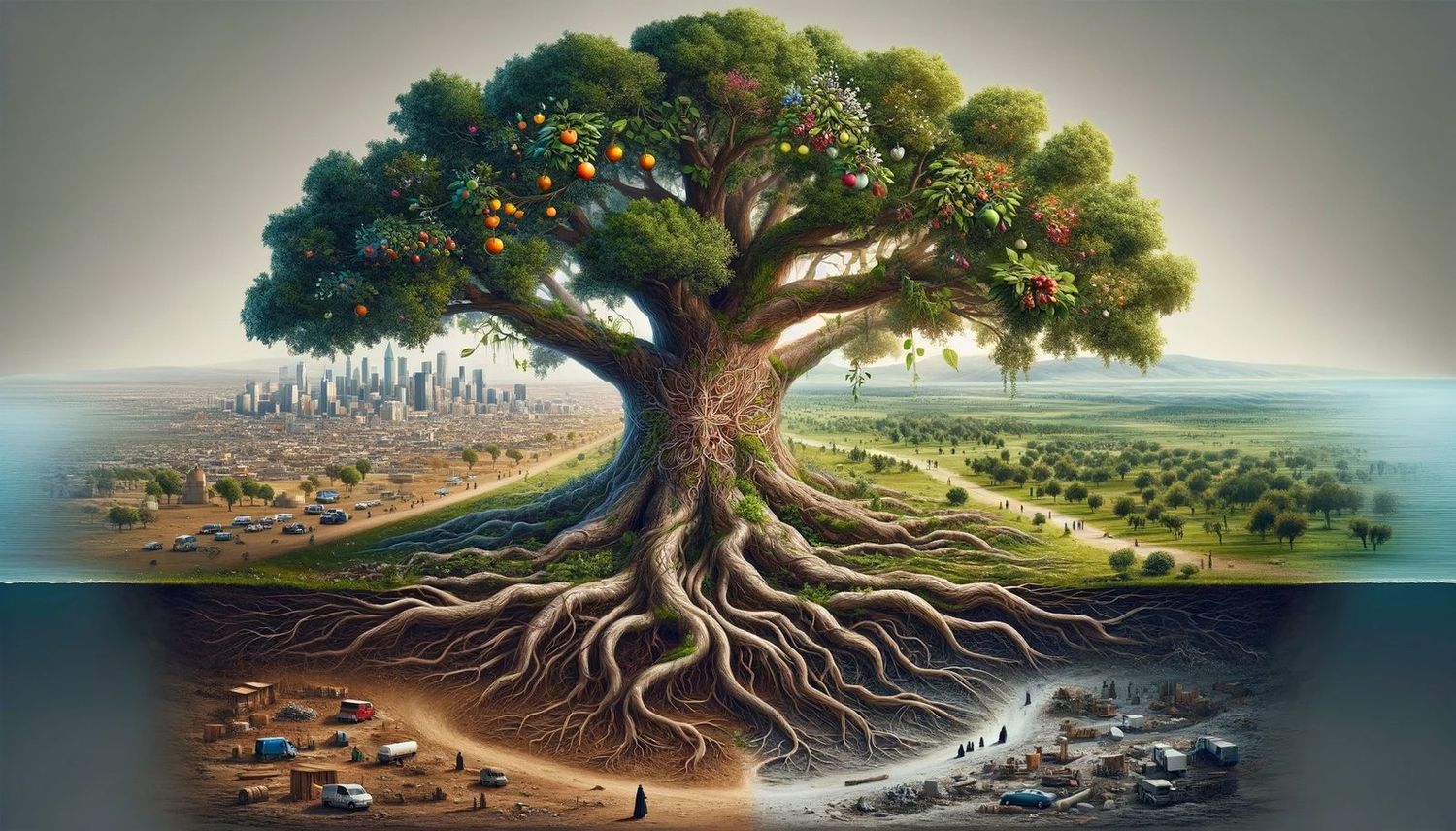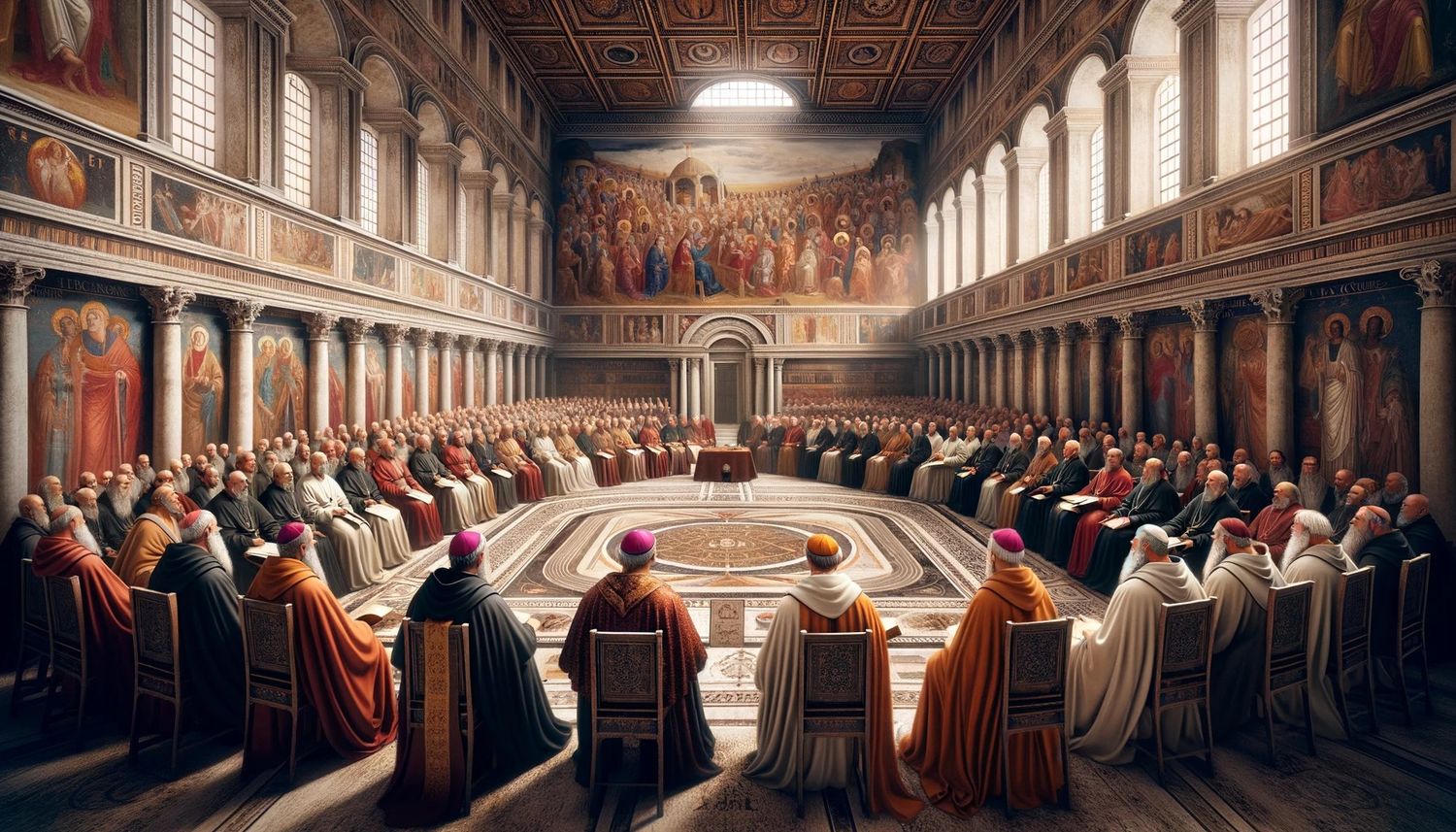Home>Theology and Spirituality>People Who Converted To Catholicism
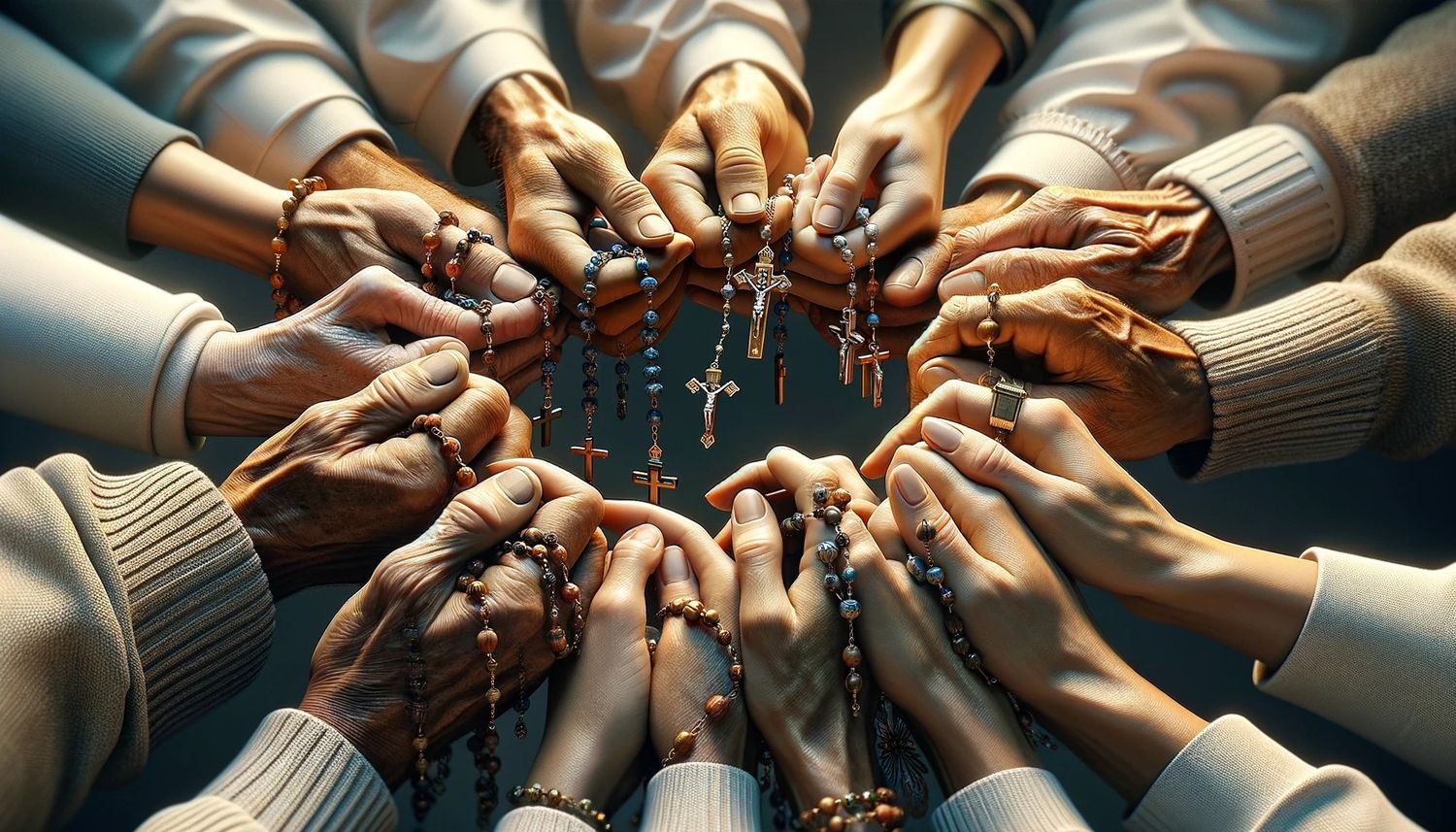

Theology and Spirituality
People Who Converted To Catholicism
Published: February 16, 2024
Peter Smith, Editorial Director at Christian.net, combines deep insights into faith, politics, and culture to lead content creation that resonates widely. Awarded for his contributions to religious discourse, he previously headed a major organization for religious communicators, enhancing dialogue on faith's societal impacts.
Discover the personal journeys of individuals who converted to Catholicism and explore the theology and spirituality that influenced their decision. Gain insights and inspiration from their stories.
(Many of the links in this article redirect to a specific reviewed product. Your purchase of these products through affiliate links helps to generate commission for Christian.net, at no extra cost. Learn more)
Table of Contents
Introduction
The decision to convert to Catholicism is often a deeply personal and spiritual journey. It involves a profound exploration of faith, doctrine, and tradition. People from diverse backgrounds and belief systems are drawn to Catholicism for a multitude of reasons, each with a unique story to tell. The process of conversion is not merely a change in religious affiliation; it represents a transformative shift in one's worldview, values, and spiritual practices.
For many individuals, the allure of Catholicism lies in its rich history, sacred rituals, and profound theological teachings. The Catholic Church's emphasis on social justice, compassion, and the sacramental life often resonates deeply with those seeking a profound connection to their faith. The beauty of Catholic liturgy, the veneration of saints, and the sacraments, including the Eucharist and reconciliation, hold a magnetic appeal for those yearning for spiritual depth and meaning in their lives.
Furthermore, the universality of the Catholic Church, with its presence in virtually every corner of the globe, offers a sense of belonging and unity to individuals from diverse cultural and geographical backgrounds. The Church's commitment to serving the marginalized and vulnerable, as well as its unwavering dedication to upholding traditional values, can be a source of inspiration for those seeking a moral compass in an increasingly complex world.
The journey of conversion to Catholicism is often marked by a profound sense of spiritual awakening and a deepening of one's relationship with God. It represents a conscious choice to embrace the teachings of the Church, participate in its sacramental life, and become part of a global community of believers. This journey is not without its challenges, but for many, the rewards of finding a spiritual home in the Catholic Church far outweigh the difficulties encountered along the way.
As we delve into the stories of individuals who have embarked on this transformative journey, we gain insight into the diverse motivations, experiences, and spiritual transformations that have led them to embrace Catholicism. Their testimonies offer a glimpse into the profound impact of conversion on their lives, inspiring others to reflect on their own spiritual paths and the universal quest for meaning, purpose, and connection.
Read more: How To Convert A Muslim To Catholicism
Reasons for Conversion
The decision to convert to Catholicism is often rooted in a complex interplay of spiritual, intellectual, and emotional factors. Individuals who embark on this transformative journey are motivated by a myriad of reasons, each deeply personal and compelling. The following are some of the common motivations that prompt people to embrace Catholicism:
-
Doctrinal Richness: Many individuals are drawn to Catholicism due to its profound doctrinal richness. The Church's teachings on the Trinity, the Eucharist, the communion of saints, and the sacraments resonate deeply with those seeking a comprehensive and intellectually stimulating understanding of Christian faith.
-
Historical Continuity: The Catholic Church's historical continuity, tracing its origins to the early Christian community and the apostolic tradition, holds a powerful allure for individuals seeking a connection to the roots of Christianity. The sense of continuity and tradition provides a profound sense of stability and authenticity.
-
Sacramental Life: The sacramental life of the Catholic Church, particularly the Eucharist, holds a central place in the spiritual lives of many converts. The belief in the real presence of Christ in the Eucharist and the transformative power of the sacraments often serves as a compelling reason for individuals to embrace Catholicism.
-
Moral and Social Teachings: The Catholic Church's unwavering commitment to social justice, human dignity, and the protection of life from conception to natural death resonates deeply with individuals seeking a moral framework that aligns with their values. The Church's teachings on issues such as poverty, immigration, and the environment often inspire individuals to convert.
-
Unity and Universality: The universal nature of the Catholic Church, with its presence in diverse cultures and geographical locations, offers a sense of unity and belonging to individuals from varied backgrounds. The Church's ability to bring together people from different walks of life under a common faith umbrella is a compelling factor for many converts.
-
Spiritual Longing: For some, the decision to convert to Catholicism stems from a profound spiritual longing and a deep desire for a more contemplative and sacramental spirituality. The rich tradition of Catholic mysticism, prayer, and spiritual practices provides a nurturing environment for individuals seeking a deeper connection with God.
-
Intellectual Inquiry: Many converts are attracted to the intellectual rigor and depth of Catholic theology and philosophy. The Church's engagement with reason, science, and philosophy, as well as its intellectual tradition, appeals to those who seek a faith that is intellectually robust and capable of addressing complex existential questions.
-
Community and Support: The sense of community, support, and fellowship within the Catholic Church often serves as a compelling reason for conversion. The opportunity to be part of a global community of believers, as well as the pastoral care and support provided by the Church, can be a significant factor for individuals seeking spiritual companionship and guidance.
These diverse reasons reflect the multifaceted nature of the journey to Catholicism and underscore the depth of thought, emotion, and spiritual longing that underpin the decision to embrace the Catholic faith. Each individual's path to conversion is unique, shaped by a complex interplay of personal experiences, intellectual inquiry, and spiritual yearning.
Personal Testimonies
The personal testimonies of individuals who have converted to Catholicism offer profound insights into the transformative power of faith and the diverse paths that lead people to embrace the Catholic Church. These testimonies reflect the deeply personal and spiritual nature of the conversion experience, shedding light on the unique journeys, challenges, and moments of grace that have shaped their faith.
One individual, Sarah, shares her testimony of conversion, describing how her encounter with the Catholic Church ignited a profound spiritual awakening. Raised in a non-religious household, Sarah found herself drawn to the beauty of Catholic liturgy and the depth of its theological teachings. Through her exploration of the Church's rich tradition and the guidance of a supportive Catholic community, Sarah discovered a sense of belonging and spiritual nourishment that had eluded her in the past. The sacraments, particularly the Eucharist, became a source of profound grace and transformation, leading Sarah to embrace Catholicism as the spiritual home she had long sought.
Similarly, John's testimony reflects the intellectual and spiritual journey that led him to convert to Catholicism. As a former skeptic of organized religion, John's encounter with the intellectual rigor of Catholic theology and the depth of its philosophical tradition sparked a profound reevaluation of his worldview. Through prayer, study, and dialogue with Catholic scholars, John found himself captivated by the coherence and depth of Catholic doctrine. His testimony speaks to the transformative power of intellectual inquiry and the profound impact of encountering the truth and beauty found within the Catholic faith.
In contrast, Maria's testimony highlights the role of personal relationships and pastoral care in her journey to Catholicism. Struggling with personal hardships and a sense of spiritual emptiness, Maria found solace and compassion within a Catholic community that embraced her with open arms. The genuine care and support she received from fellow Catholics, as well as the guidance of a compassionate priest, became instrumental in her decision to convert. Maria's testimony underscores the profound impact of community and pastoral care in nurturing the seeds of faith and fostering a sense of belonging and acceptance.
These personal testimonies, among countless others, offer a glimpse into the diverse motivations, experiences, and spiritual transformations that have led individuals to embrace Catholicism. Each testimony reflects the unique interplay of intellectual inquiry, spiritual longing, community support, and encounters with grace that characterize the journey of conversion. These stories serve as a testament to the universal human quest for meaning, belonging, and a deeper connection with the divine, transcending cultural, geographical, and personal differences.
Challenges Faced
The journey of conversion to Catholicism is not without its challenges. Individuals who embark on this transformative path often encounter a range of obstacles, both internal and external, as they navigate the complexities of embracing a new faith tradition. These challenges can test their resolve, faith, and relationships, presenting profound opportunities for growth and spiritual maturation.
One of the primary challenges faced by individuals undergoing conversion to Catholicism is the potential strain on familial and social relationships. For many, the decision to embrace Catholicism represents a significant departure from their familial or cultural religious heritage. This shift in religious affiliation can lead to tensions within family dynamics and social circles, as loved ones grapple with the perceived divergence from shared religious traditions. Navigating these delicate interpersonal dynamics requires patience, understanding, and a deep commitment to maintaining open and respectful communication with those closest to them.
Additionally, the process of familiarizing oneself with the intricate rituals, traditions, and theological nuances of Catholicism can present a steep learning curve for converts. The richness and depth of Catholic doctrine, liturgical practices, and spiritual disciplines may initially feel overwhelming, requiring a dedicated effort to study and internalize the teachings of the Church. This intellectual and spiritual assimilation demands humility, perseverance, and a willingness to embrace a lifelong journey of learning and growth within the Catholic faith.
Moreover, individuals undergoing conversion may encounter internal struggles and doubts as they navigate the complexities of embracing a new belief system. The process of reconciling deeply ingrained beliefs and spiritual practices with the tenets of Catholicism can give rise to moments of uncertainty and spiritual wrestling. This internal tension calls for a spirit of discernment, prayerful reflection, and seeking guidance from spiritual mentors and the faith community.
Furthermore, the broader societal and cultural context in which individuals undergo conversion can pose challenges to their newfound faith identity. In some cases, converts may face misunderstanding, prejudice, or misconceptions about Catholicism within their social or professional spheres. Navigating these external perceptions and upholding their faith with conviction demands courage, resilience, and a commitment to embodying the values and teachings of the Catholic Church in the face of adversity.
Despite these challenges, the journey of conversion to Catholicism offers profound opportunities for spiritual growth, resilience, and a deepening of faith. The obstacles encountered along this transformative path serve as catalysts for personal and spiritual maturation, shaping individuals into resilient and steadfast members of the Catholic faith community. Through perseverance, prayer, and the support of fellow believers, converts navigate these challenges with grace and emerge strengthened in their commitment to their newfound spiritual home.
Impact on Personal and Spiritual Life
The decision to convert to Catholicism exerts a profound and multifaceted impact on individuals' personal and spiritual lives, permeating every aspect of their being and reshaping their worldview, values, and relationships. Embracing the Catholic faith represents a transformative journey that extends far beyond religious affiliation, engendering a deep sense of personal and spiritual metamorphosis.
At a personal level, the impact of conversion to Catholicism is often marked by a profound sense of belonging and identity. Individuals find themselves woven into the rich tapestry of the Catholic faith, becoming part of a global community that spans continents, cultures, and centuries. This newfound sense of belonging fosters a deep-rooted connection to the historical, theological, and communal dimensions of Catholicism, providing a sense of continuity and heritage that enriches their personal narrative.
Moreover, the embrace of Catholicism often catalyzes a reorientation of personal values and priorities. The moral and social teachings of the Catholic Church, centered on compassion, justice, and the dignity of every human person, profoundly influence the ethical framework by which individuals navigate their lives. This shift in values engenders a heightened awareness of social responsibility, a commitment to serving the marginalized, and a deepened reverence for the sanctity of life, permeating their personal and professional endeavors.
Spiritually, the impact of conversion to Catholicism is characterized by a deepening of one's relationship with God and a transformative engagement with the sacramental life of the Church. The sacraments, particularly the Eucharist and reconciliation, become wellsprings of grace and spiritual nourishment, infusing individuals' lives with a profound sense of divine presence and transformative love. The rhythms of Catholic liturgy, the beauty of sacred art and music, and the contemplative traditions of the Church provide a fertile ground for spiritual growth, fostering a deepened intimacy with the divine.
Furthermore, the embrace of Catholicism often kindles a fervent commitment to prayer, contemplation, and the cultivation of a vibrant spiritual life. Individuals find themselves drawn into the rich tapestry of Catholic spirituality, exploring the depths of prayer traditions, mystical writings, and the wisdom of the saints. This spiritual immersion engenders a profound sense of inner peace, resilience in the face of life's challenges, and a deepened capacity for compassion and empathy towards others.
In essence, the impact of conversion to Catholicism reverberates through the core of individuals' being, shaping their personal identity, values, and spiritual journey in profound and enduring ways. This transformative embrace of the Catholic faith becomes a wellspring of grace, wisdom, and spiritual fortitude, guiding individuals on a path of profound personal and spiritual flourishing.
Read more: How To Convert To Catholicism For Marriage
Conclusion
The journey of conversion to Catholicism is a profound testament to the universal human quest for meaning, belonging, and spiritual fulfillment. Through the personal testimonies, challenges faced, and the transformative impact on personal and spiritual life, it becomes evident that the decision to embrace Catholicism represents far more than a mere change in religious affiliation. It embodies a profound spiritual awakening, a reorientation of values, and a deepening of one's relationship with God.
The diverse motivations for conversion, ranging from doctrinal richness and historical continuity to the allure of the sacramental life and the Church's moral teachings, underscore the multifaceted nature of the journey to Catholicism. Each individual's path to conversion reflects a unique interplay of intellectual inquiry, spiritual longing, and the search for a sense of belonging and unity within the global Catholic community.
The personal testimonies of those who have embraced Catholicism offer a glimpse into the transformative power of faith and the diverse paths that lead individuals to the Catholic Church. These stories serve as a testament to the resilience, courage, and spiritual maturation that characterize the journey of conversion, inspiring others to reflect on their own spiritual paths and the universal quest for meaning and connection.
The challenges faced by individuals undergoing conversion, whether in navigating familial tensions, grappling with the complexities of Catholic doctrine, or confronting societal misconceptions, serve as opportunities for growth, resilience, and a deepening of faith. Through perseverance and the support of the faith community, converts navigate these challenges with grace and emerge strengthened in their commitment to their newfound spiritual home.
The impact of conversion to Catholicism on personal and spiritual life is profound, permeating every aspect of individuals' being and reshaping their worldview, values, and relationships. The embrace of Catholicism engenders a deep sense of belonging, a reorientation of personal values, and a transformative engagement with the sacramental and spiritual life of the Church, fostering a profound sense of personal and spiritual flourishing.
In conclusion, the journey of conversion to Catholicism stands as a testament to the transformative power of faith, the resilience of the human spirit, and the universal longing for a deeper connection with the divine. It is a journey marked by courage, grace, and the enduring quest for spiritual fulfillment, offering profound insights into the universal human yearning for meaning, purpose, and a sense of belonging within the embrace of the Catholic faith.
